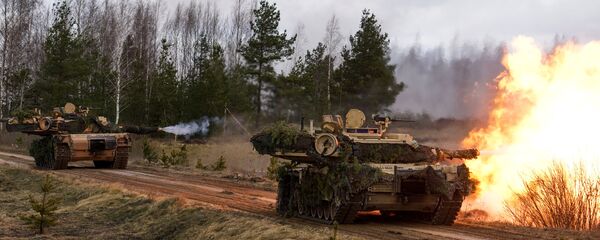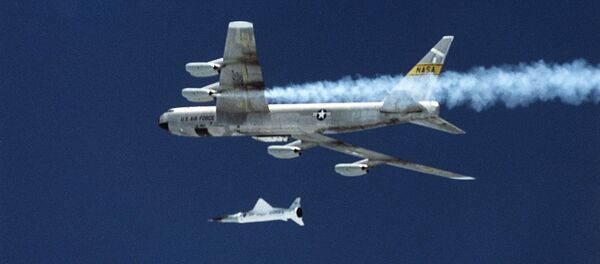On Thursday, Putin, while addressing the country's parliament, spoke of the advanced weapons received by the Russian armed forces. In his speech, Putin said that the Russian strategic nuclear forces had received 80 new intercontinental ballistic missiles, 102 submarine-launched ballistic missiles and three Borei-class ballistic missile submarines. In addition, Putin pointed out that over 300 new pieces of military equipment had been received by Russian forces since 2012.
According to the Russian leader, the development of new weapons does not pose any threat to foreign states and is a necessary measure given the deployment of the US missile defense systems around the world and, in particular, near the Russian borders.
According to Amin Khatit, a Lebanese military expert, Putin's rhetoric should not be perceived as Russia's desire to wage a war with the West.
"Putin does not want a war with the West, but he wants to show the power, capable of preventing the West from committing follies in the military and political fields," Khatit said.
"We can call Putin's address an address of the balanced strategic deterrence, in particular with regard to the relations with the West and Russia's military potential," Khatit summarized.
This view is shared by Riad Eid, a Lebanese expert in geopolitics, who assumes that Putin's words about Russia's nuclear power and its modernization, was a message, saying that the ballistic attacks on Syria and other allies of Russia would not go unanswered.
"Yesterday Putin ensured a 'nuclear umbrella' covering Syria, Iran and other allies in the Middle East that would protect them against the United States," Eid explained.
However, in the context of extremely tensed relations between Russia and the United States Putin's speech is likely to be viewed as an example of aggressive rhetoric, according to John Russell, the emeritus professor of Russian and Security Studies at the University of Bradford.
"With Russia being portrayed as the main threat to US security by senior officials in Washington at the same time as the Kremlin is being identified in these circles as an obstacle to peace in Syria, the likelihood is that his intervention will be widely regarded in the USA as ratcheting up the confrontation. Nonetheless, Putin will have achieved his stated aim of getting the West to sit up and listen to what he has to say on strategic military matters," Russell said.
"It is by now clear to all, that Putin and Russia, along with other key states worldwide (including China, Turkey, Egypt, Indonesia and others), have rejected the West's liberal-democratic path of development, as indeed have some states hitherto within the Western bloc," Russel said.
Eid explained that by development of deterrence capabilities and refusal to take part in the arms race, Russia dictated its rules to the West and ensured its superiority in averting the possibility of another world war.
The three experts converged on the opinion that Putin's address was not offensive in its nature, with Khatit suggesting that the speech constituted a rational instrument of pressure on western states.





